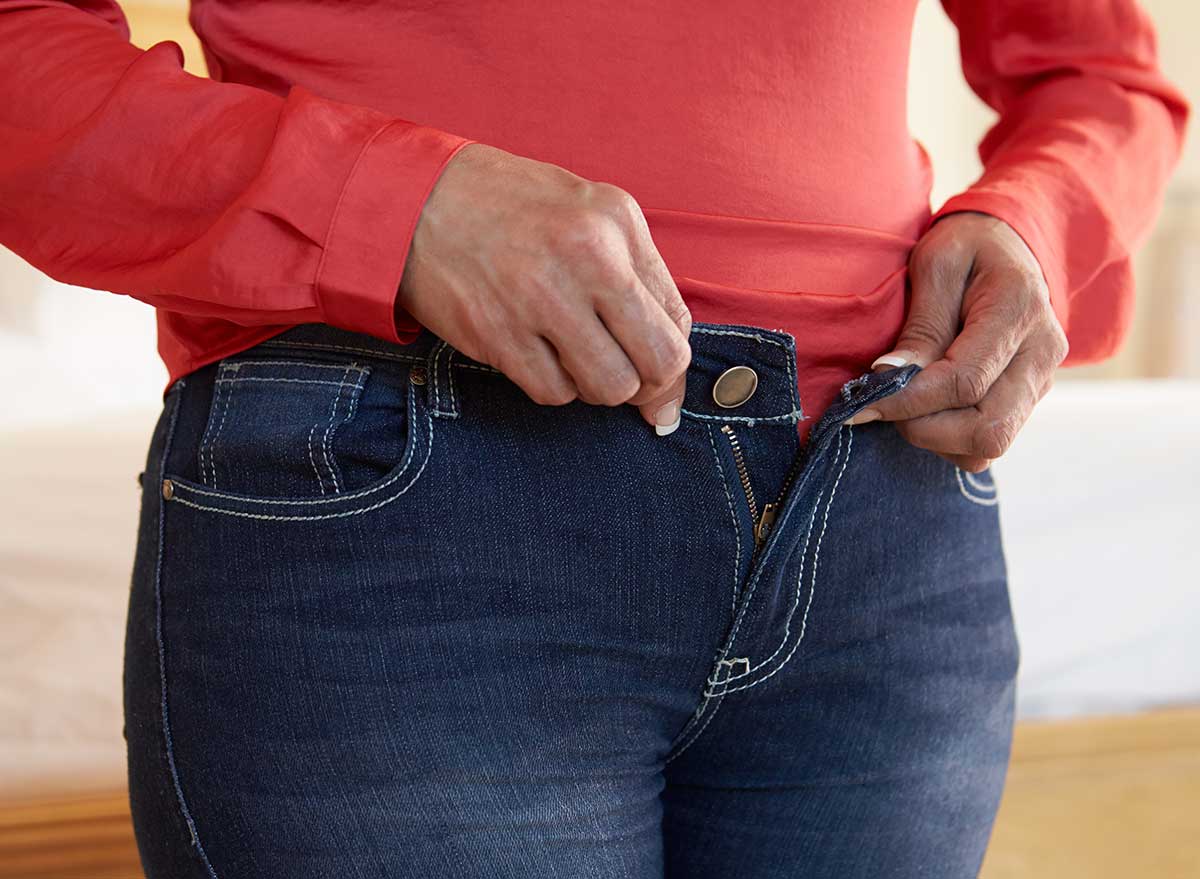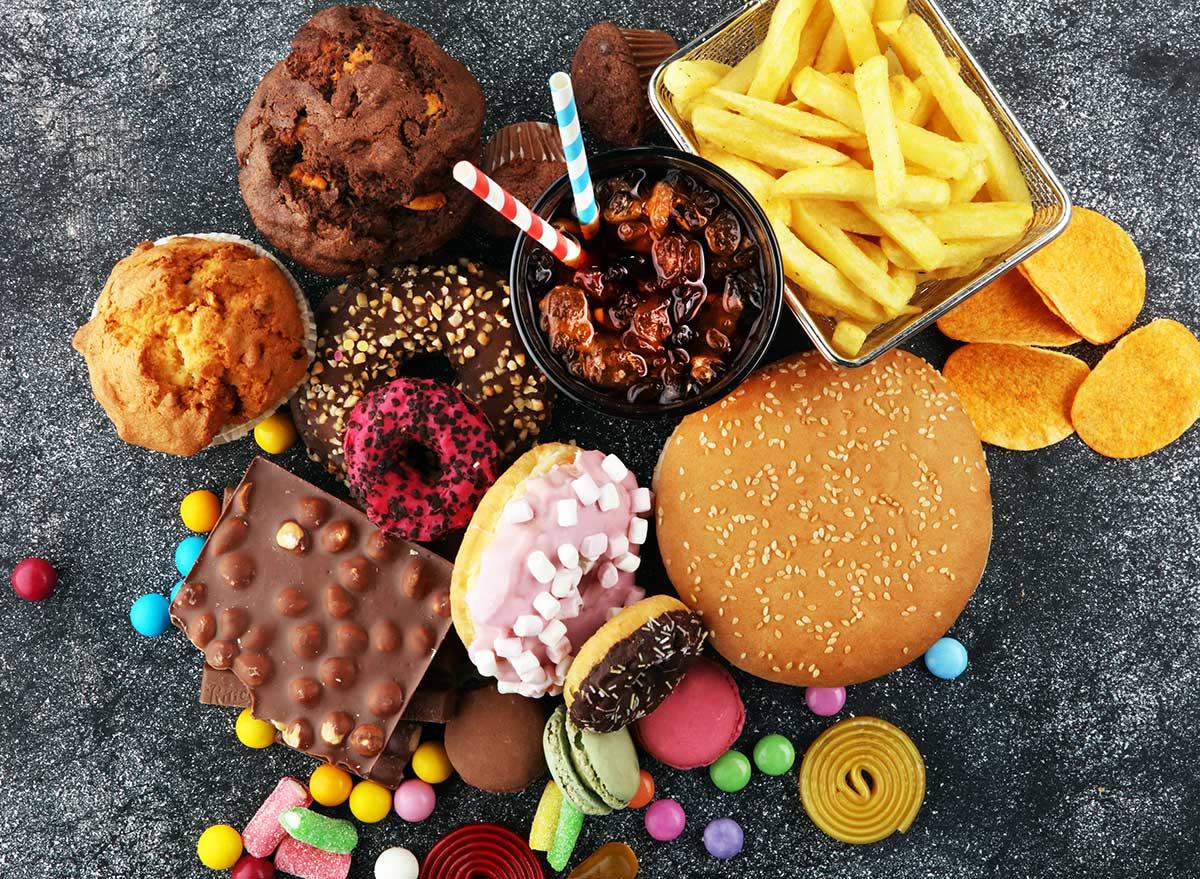What Happens to Your Body When You Eat Dessert Every Day

Do you have an uncontrollable sweet tooth? You're not alone! I certainly have one, too, but as a dietitian I also know what can happen to your body if you eat dessert day after day. Perhaps after taking a look at some of the outcomes of feeding that sweet tooth with all the ooey, gooey goodness of dessert, you may start to think it's time to cut back. Or at least try to lighten up your dessert with these 73+ Best Healthy Dessert Recipes for Weight Loss. Don't forget to sign up for our newsletter to get the latest food and weight loss news delivered straight to your inbox.
You can gain weight

Dessert tends to have a hefty calorie count. If your daily dessert is equivalent to a slice of the Original Cheesecake at The Cheesecake Factory, you'll be adding 830 calories to your daily diet. To put it into perspective, the average daily recommended U.S. calories is 2,000 and that cheesecake would contribute 41% of those calories. Given that you're eating two other meals during the day, you're certainly going to eat more than your body needs. Over time, this will lead to packing on the pounds. Here are some other Foods Ruining Your Weight Loss Goals.
You're increasing your risk of heart disease and stroke

Many desserts are laden with artery-clogging saturated fat. The 2015–2020 dietary guidelines for Americans recommend no more than 10% of your total daily calories should come from saturated fat. That would mean that, on an average 2,000-calorie diet, no more than 200 of your daily calories should come from sources of saturated fat like ice cream, whole milk, butter, cake, cookies, and doughnuts. Eating too much saturated fat over time can cause an increase in your LDL (aka "bad") cholesterol, which puts you at risk for heart disease and stroke. Instead, try one of these 25 Surprising Foods That Burn Fat.
You're probably going overboard on added sugar

The 2015–2020 dietary guidelines also recommend that no more than 10% of your total daily calories should come from added sugar (which is 200 calories based on a 2,000 calorie diet). According to the dietary guidelines, "Eating and drinking too many foods and beverages with added sugar makes it tough to achieve a healthy eating pattern without taking in too many calories." Added sugar contributes calories, but doesn't provide many nutrients your body needs. Check out these 50 Low-Sugar Foods Every Healthy Person Eats.
You may experience food guilt

If you're trying to lose weight or eat healthy, there is also a psychological aspect of eating high-calorie desserts every day. It may trigger feelings of guilt, which no one should ever experience after eating any sort of food. If you really want to feed your sweet tooth daily, then think of ways to do so by consuming fresh fruit or much smaller portions of dessert. Instead try these 30 Guilt-Free Snacks for Your Biggest Cravings.
You may take in more antioxidants and phytonutrients

If you choose to eat dessert every day, make sure it includes fruit. This way you'll be taking in a greater dose of vitamins A and C, and phytonutrients like anthocyanins, which are found in berries. Phytonutrients are natural compounds found in plants that can help fight and prevent disease, while anthocyanins are compounds that contain antioxidants and can help fight free radicals that harm your cells. When it comes to dessert, it's really a matter of choosing the right one, filled with healthy lower calorie foods that can actually be beneficial. Check out our hefty list of Healthy Desserts Nutrition Experts Swear By.








